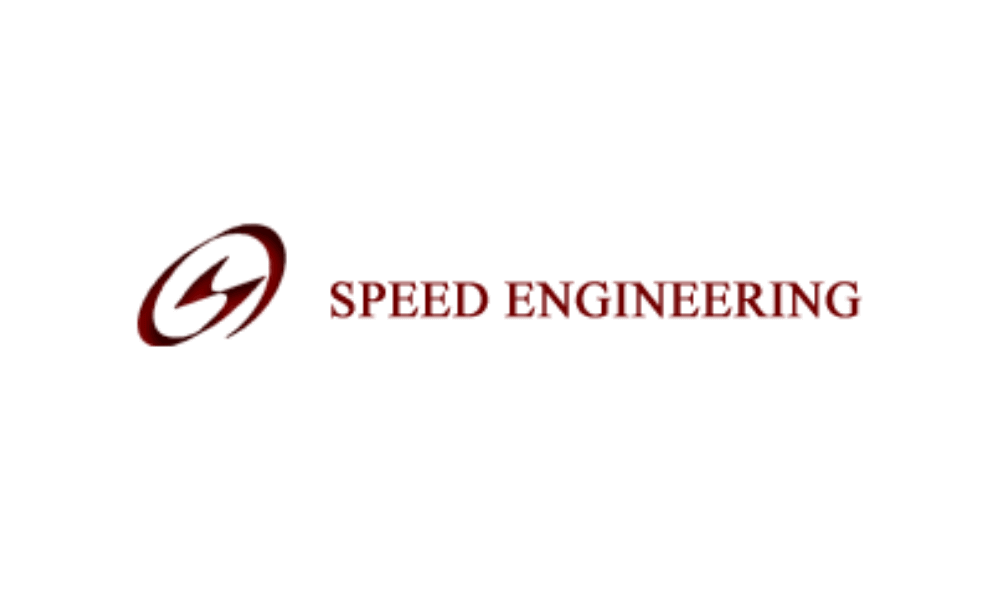Speed engineering is an essential discipline in the realm of engineering that focuses on optimizing processes and systems to enhance efficiency and performance. In today's fast-paced world, where time is of the essence, speed engineering has become a critical factor in various industries, including manufacturing, software development, and logistics. This article aims to delve deep into the principles of speed engineering, its applications, and its impact on efficiency and productivity.
In this comprehensive guide, we will explore the fundamental concepts of speed engineering, its significance in modern engineering practices, and the strategies that can be implemented to achieve optimal speed without compromising quality. Whether you are an engineer, a project manager, or simply someone interested in improving processes, this article will provide valuable insights into speed engineering.
As we navigate through the various aspects of speed engineering, we will also touch upon real-world examples, case studies, and expert opinions to illustrate the effectiveness of speed engineering practices. By the end of this article, you will have a thorough understanding of speed engineering and its role in enhancing operational efficiency.
Table of Contents
- What is Speed Engineering?
- Importance of Speed Engineering
- Principles of Speed Engineering
- Applications of Speed Engineering
- Challenges in Speed Engineering
- Case Studies in Speed Engineering
- Future of Speed Engineering
- Conclusion
What is Speed Engineering?
Speed engineering involves the systematic approach to improving the speed and efficiency of processes, systems, and operations. This discipline aims to minimize delays, streamline workflows, and enhance overall productivity without sacrificing quality or safety. The core objective of speed engineering is to identify and eliminate bottlenecks, optimize resource allocation, and implement best practices that lead to faster turnaround times.
Key Concepts in Speed Engineering
- Process Optimization: Analyzing and improving existing processes to enhance efficiency.
- Bottleneck Identification: Identifying and addressing points in a process that slow down productivity.
- Resource Management: Efficiently allocating resources to maximize output.
- Continuous Improvement: Ongoing efforts to enhance processes and systems.
Importance of Speed Engineering
The significance of speed engineering cannot be overstated, especially in today's competitive landscape. Organizations that effectively implement speed engineering practices can reap numerous benefits:
- Increased Productivity: Streamlined processes lead to higher output levels.
- Cost Reduction: Efficiency improvements often result in lower operational costs.
- Enhanced Customer Satisfaction: Faster response times and improved quality lead to happier customers.
- Competitive Advantage: Organizations that prioritize speed engineering can outpace their competitors.
Principles of Speed Engineering
Several key principles underpin speed engineering, guiding practitioners in their efforts to enhance process efficiency:
- Lean Thinking: Focus on minimizing waste and maximizing value.
- Agility: The ability to adapt quickly to changing circumstances.
- Data-Driven Decision Making: Utilizing data analytics to inform process improvements.
- Collaboration: Encouraging teamwork and communication across departments.
Lean Methodology in Speed Engineering
Lean methodology is a cornerstone of speed engineering, emphasizing the elimination of waste and the continuous improvement of processes. The five principles of lean methodology are:
- Value: Define value from the customer's perspective.
- Value Stream: Map out the value stream to identify waste.
- Flow: Ensure that processes flow smoothly without interruptions.
- Pull: Implement a pull-based system to produce only what is needed.
- Perfection: Strive for continuous improvement and perfection.
Applications of Speed Engineering
Speed engineering finds its applications across various industries, each benefiting from the principles of efficiency and optimization:
Manufacturing
In manufacturing, speed engineering is crucial for optimizing production lines, reducing cycle times, and improving overall equipment effectiveness (OEE). By implementing lean practices, manufacturers can achieve significant reductions in lead times and costs while maintaining quality standards.
Software Development
In the realm of software development, speed engineering is embodied in practices such as Agile and DevOps, which emphasize rapid development cycles, continuous integration, and delivery. These methodologies enable teams to respond quickly to changing requirements and deliver value to customers faster.
Logistics and Supply Chain
Speed engineering also plays a vital role in logistics and supply chain management. By optimizing transportation routes, warehouse operations, and inventory management, organizations can achieve faster delivery times and reduced operational costs.
Challenges in Speed Engineering
Despite its numerous benefits, speed engineering faces several challenges that practitioners must navigate:
- Resistance to Change: Employees may resist new processes and workflows.
- Limited Resources: Organizations may struggle to allocate sufficient resources for implementation.
- Overemphasis on Speed: Focusing solely on speed can lead to quality issues.
- Data Management: Effectively managing and analyzing data can be complex.
Case Studies in Speed Engineering
Examining real-world examples of speed engineering can provide valuable insights into its effectiveness. Below are a few notable case studies:
Case Study 1: Toyota Production System
Toyota's production system is a prime example of speed engineering in action. By implementing lean principles and just-in-time manufacturing, Toyota has achieved remarkable efficiency and quality in its production processes.
Case Study 2: Amazon Logistics
Amazon has revolutionized logistics through speed engineering practices. Its advanced algorithms for route optimization, coupled with real-time data analytics, enable the company to deliver products to customers faster than its competitors.
Future of Speed Engineering
The future of speed engineering looks promising, with advancements in technology and data analytics paving the way for even greater efficiency. Automation, artificial intelligence, and machine learning are expected to play significant roles in enhancing speed engineering practices, allowing organizations to achieve unprecedented levels of productivity.
Conclusion
In conclusion, speed engineering is a vital discipline that can significantly impact operational efficiency and productivity across various industries. By understanding the principles and applications of speed engineering, organizations can implement effective strategies for improving their processes and achieving better outcomes. We invite you to share your thoughts and experiences related to speed engineering in the comments below. Additionally, feel free to explore more articles on our site for further insights.
Thank you for reading! We hope this article has been informative and encourages you to return for more knowledge on engineering and optimization.




